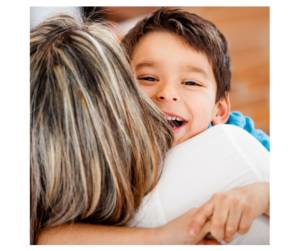I am sure it will come as no surprise that many clients seek help for children with tantrums or meltdowns. In the therapy world, we call this emotional dysregulation. If your child reaches school age and suffers from these regularly, we discover they may have a problem with emotional regulation.
I know that they are a big challenge. It can be hard for any parent to respond, contain, and manage them, especially if they are over the terrible twos. Let me help you to understand them:
Tantrums vs Meltdowns
Many child therapists distinguish between the two, but neither are clinical terms. A tantrum is milder. During a tantrum, you may be able to help your child, and they may have some control. A meltdown is an extreme form; your child may be totally out of control, and you will not be able to calm them down. Likely, it will only stop when your child has worn both of you out.
Why does my child have them?
Mostly your child is struggling with emotions. The no 1 is anger, but I work with many children who are very anxious, and this can lead to an accumulation of feelings of then “blow”. This is especially common for children who may be socially anxious. Emotions can build all day at school and blow when they return home. This is very hard for parents to manage, especially if there are no problems at school.
For other children, big feelings are expressed, and they have yet to learn socially appropriate ways of talking about them. This is often developmental; children’s connections to their higher, wiser, and more rational minds won’t fully connect until they are 7. Also, children who have ADHD, anxiety, and learning issues are at a big disadvantage to others and are more likely to “blow”.
How parents can escalate them unintentionally.
Whilst temperament, anxiety, and learning issues have a part to play, the environment has a part too. We all have times when we don’t know what to do and unfortunately, you may escalate a situation by:
1.Invalidating your child’s feelings
When your child is upset, they are really upset and will be experiencing their feelings in an intense way, if we respond by saying:
Don’t worry honey, it’s just…..you will feel better later…… let’s just look at this
You may unintentionally minimise your child’s feelings by distracting and deflecting. They will likely not feel accepted or heard and will continue to shout even more.
2. Reacting back
During a meltdown, your child has lost all reason. Their Amygdala will be in charge, and it is a mindless physical response. They say all kinds of awful things that they don’t mean. They may hate themselves, so they tell you that they hate you. When parents hear this often, parents collapse emotionally and take it personally. This interaction will sometimes trigger your Amygdala, and you react by either fighting, shouting, or collapsing by crying. Be kind to yourself; we all make mistakes, and if this interaction is regular, seek help to understand your reactions.
3. Not being consistent
Many children feel very unsafe if they get their way all the time. You need to ensure that if you say no, you mean it. Your goal is to ignore behaviour directed at getting you to change your mind. When the child stops acting up and returns to playing quietly or speaking calmly, be ready with positive reinforcement. 
“I like how you calmed down,” or “It’s so nice when you speak to me this way.” Try to work with one behaviour at a time and be consistent. I work with many parents who each have different parenting styles. This should not be a problem, but they each have a very different method of managing the behaviours, so sit down, agree on what you will do together, and stick to it. Make it a family rule and inform your children in a family meeting. Remember, a child is more likely to take responsibility for their behaviour if they feel they are part of the solution.
Here is a free download on initiating Family Meetings to help you connect and remain calm. With much love, Catherine



